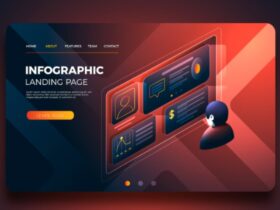The travel industry has been almost totally transformed by the influence of artificial intelligence and all the opportunities this new technology promises.
Some things remain steadfast, such as the need for good options when it comes to payment processing for travel industry businesses, but in other areas of the sector, no shift has been as rapid or transformative as the one driven by AI.
In a matter of just a few short years, AI has rewritten how people plan, book, and experience travel. Make no mistake, this is not a passing trend, the advent of the technology means that it’s the new engine driving the entire industry forward.
Here’s some key ways AI has forever changed travel, and why its impact is only just beginning.
A new era of personalized travel planning
Sifting your way through hundreds of flight options or comparing endless hotel listings is an activity that has now been consigned to history. In its place, AI now powers most major travel platforms, learning your preferences every time you search, click, or book.
Instead of simply showing a generic list of destinations, AI tools tailor recommendations to your travel history, budget, and personal preferences. Whether you’re a business traveler looking for cost-effective efficiency, or a family searching for a vacation, the system is very adept at learning what you want, and adjusts search results accordingly.
This level of personalization was once impossible without the help of a dedicated personal travel advisor. Today, it’s the norm. Your next vacation could be planned entirely by an AI assistant that knows your favorite cuisine, preferred hotel chain, and how long you like to stay. Everything you want down to the smallest detail.
You can now benefit from smarter booking systems and dynamic pricing
AI has made the whole booking process faster, smarter, and more transparent. Airlines and hotels now use complex algorithms to set prices in real time, adjusting based on demand, seasonality, and consumer behavior.
Certain aspects of this approach can induce price spikes, but it can often work in your favor by creating competitive pricing and last-minute deals.
For travel companies, AI helps forecast demand more accurately. This is because it predicts when customers are most likely to book. That level of insight allows businesses to manage inventory efficiently and reduce waste. This helps reduce the number of empty hotel rooms to unsold airline seats.
A new level of customer service
It is clear to see that customer service has been revolutionized by AI-powered chatbots and virtual assistants. What used to take long hold times and call centers can now be handled instantly through messaging platforms.
If you need to change a flight, update a reservation, or ask about baggage policies, AI-driven chatbots can provide immediate, accurate answers around the clock. That kind of instant support is invaluable.
Beyond convenience, these systems learn from every interaction. Over time, they recognize frequent customers, predict common issues, and offer proactive solutions.
Enjoy a more streamlined airport and hotel experience
The evidence is clear that airports and hotels have embraced AI, not just behind the scenes, but front and center.
At airports, facial recognition and biometric check-ins are cutting down wait times and reducing paperwork. Automated systems can verify identities, match luggage, and even estimate boarding efficiency. What once required long lines and manual checks is now handled seamlessly through data and AI-powered recognition technology.
Hotels are also becoming more intelligent. From AI-powered concierge services to smart room controls that adjust lighting and temperature automatically. This is helping make the guest experience more customized than ever.
This shift isn’t just about convenience. It’s using the power of AI to create smoother, more personal experiences.
AI delivers smarter marketing and customer insights
Behind every email from a travel company or airline that arrives in your inbox, there’s an AI system at work. It is trying to provide you with a targeted deal you actually want to see.
Machine learning algorithms analyze customer data, from searches, bookings, reviews, and even social media activity, to deliver marketing that feels distinctly personal. It means you get fewer irrelevant ads and more genuinely useful suggestions. It could be a reminder to visit a destination you once looked at or a discount on a route you’ve taken before. Whatever it is, AI is often behind the personalized message you get.
AI helps achieve sustainable travel
Without a doubt, sustainability is one of travel’s biggest challenges, and AI is helping address it head-on. It helps the cause by analyzing patterns in energy use, waste management, and transportation. As a result, AI systems help travel companies reduce their carbon footprint.
An example of this would be an airline using AI to optimize flight paths. This generates savings on fuel and helps cut emissions. Hotels always use smart systems to manage power consumption, water use, and waste.
As a traveler, you are now likely to be guided toward greener choices, such as eco-friendly hotels or carbon-offset options, all through AI-powered travel apps.
AI is definitely helping to achieve the goal of smarter, more sustainable travel that benefits both the planet and the bottom line.
AI-powered travel creation is on the rise
Perhaps the most exciting development is the rise of AI trip planners. These tools are powered by natural language processing. It means you can now design entire itineraries, from flights, accommodations, activities, even dining, all based on a few typed preferences.
Type in your request and AI generates a detailed, bookable itinerary. This level of automation doesn’t just make travel planning easier, it actually redefines the role of travel advisors and agencies. As a result, human experts now use AI as a creative assistant, combining machine speed with human insight to deliver highly customized travel experiences.
The future of AI in travel
AI isn’t just improving the travel industry, it’s almost totally redefining it. From predictive pricing to personalized experiences and sustainability solutions, artificial intelligence is becoming the silent partner behind every great trip.
It is crystal clear that the mark AI has left on the travel industry isn’t temporary, it’s permanent. And as technology continues to evolve, travel will only get more personal, more sustainable, and more intelligent.
The journey has changed forever, and it’s all thanks to the power and influence of AI.













































Leave a Reply